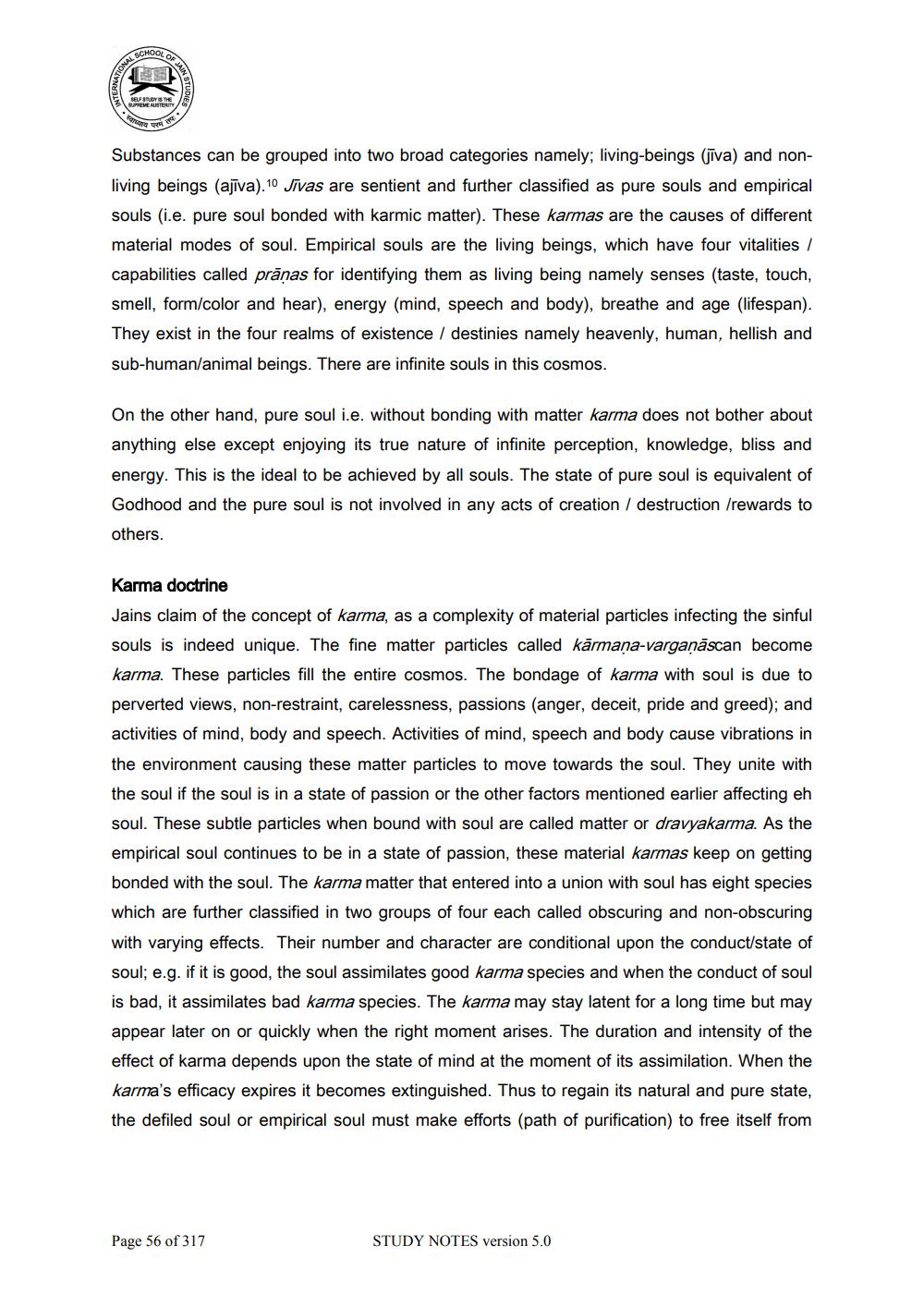________________
SCHOOL
TIONAL
OF
SELF STUDY IS THE SUPREME AUSTERITY,
STUDIES
Substances can be grouped into two broad categories namely; living-beings (jiva) and nonliving beings (ajīva). 10 Jīvas are sentient and further classified as pure souls and empirical souls (i.e. pure soul bonded with karmic matter). These karmas are the causes of different material modes of soul. Empirical souls are the living beings, which have four vitalities / capabilities called pranas for identifying them as living being namely senses (taste, touch, smell, form/color and hear), energy (mind, speech and body), breathe and age (lifespan). They exist in the four realms of existence / destinies namely heavenly, human, hellish and sub-human/animal beings. There are infinite souls in this cosmos.
On the other hand, pure soul i.e. without bonding with matter karma does not bother about anything else except enjoying its true nature of infinite perception, knowledge, bliss and energy. This is the ideal to be achieved by all souls. The state of pure soul is equivalent of Godhood and the pure soul is not involved in any acts of creation / destruction /rewards to others.
Karma doctrine
Jains claim of the concept of karma, as a complexity of material particles infecting the sinful souls is indeed unique. The fine matter particles called karmaṇa-vargaṇāscan become karma. These particles fill the entire cosmos. The bondage of karma with soul is due to perverted views, non-restraint, carelessness, passions (anger, deceit, pride and greed); and activities of mind, body and speech. Activities of mind, speech and body cause vibrations in the environment causing these matter particles to move towards the soul. They unite with the soul if the soul is in a state of passion or the other factors mentioned earlier affecting eh soul. These subtle particles when bound with soul are called matter or dravyakarma. As the empirical soul continues to be in a state of passion, these material karmas keep on getting bonded with the soul. The karma matter that entered into a union with soul has eight species which are further classified in two groups of four each called obscuring and non-obscuring with varying effects. Their number and character are conditional upon the conduct/state of soul; e.g. if it is good, the soul assimilates good karma species and when the conduct of soul is bad, it assimilates bad karma species. The karma may stay latent for a long time but may appear later on or quickly when the right moment arises. The duration and intensity of the effect of karma depends upon the state of mind at the moment of its assimilation. When the karma's efficacy expires it becomes extinguished. Thus to regain its natural and pure state, the defiled soul or empirical soul must make efforts (path of purification) to free itself from
Page 56 of 317
STUDY NOTES version 5.0




